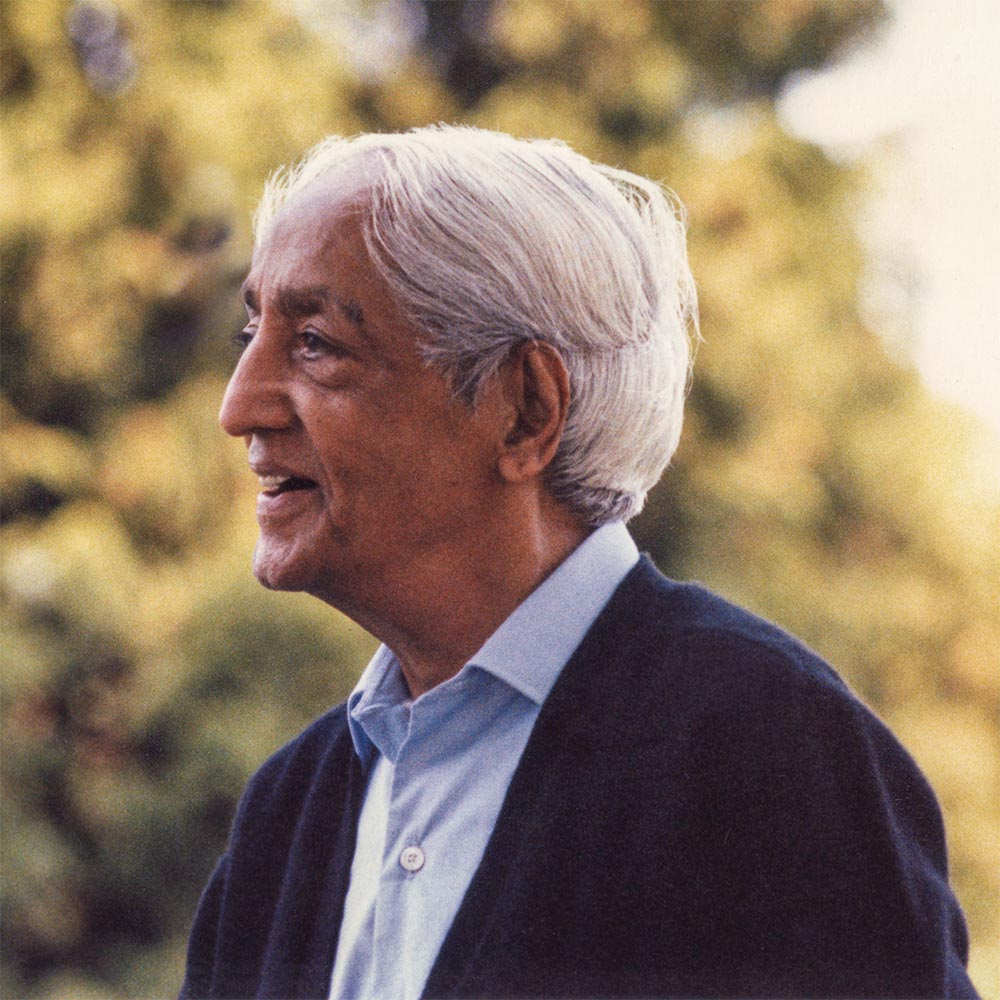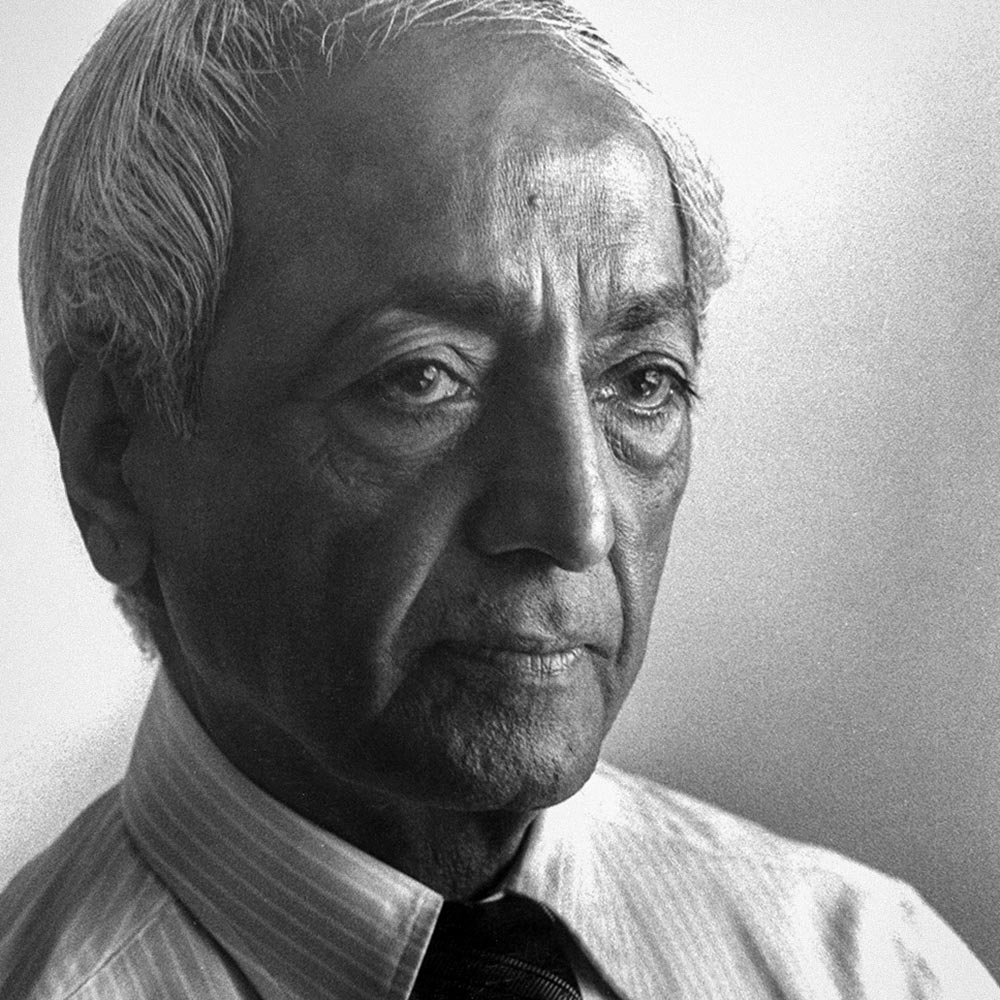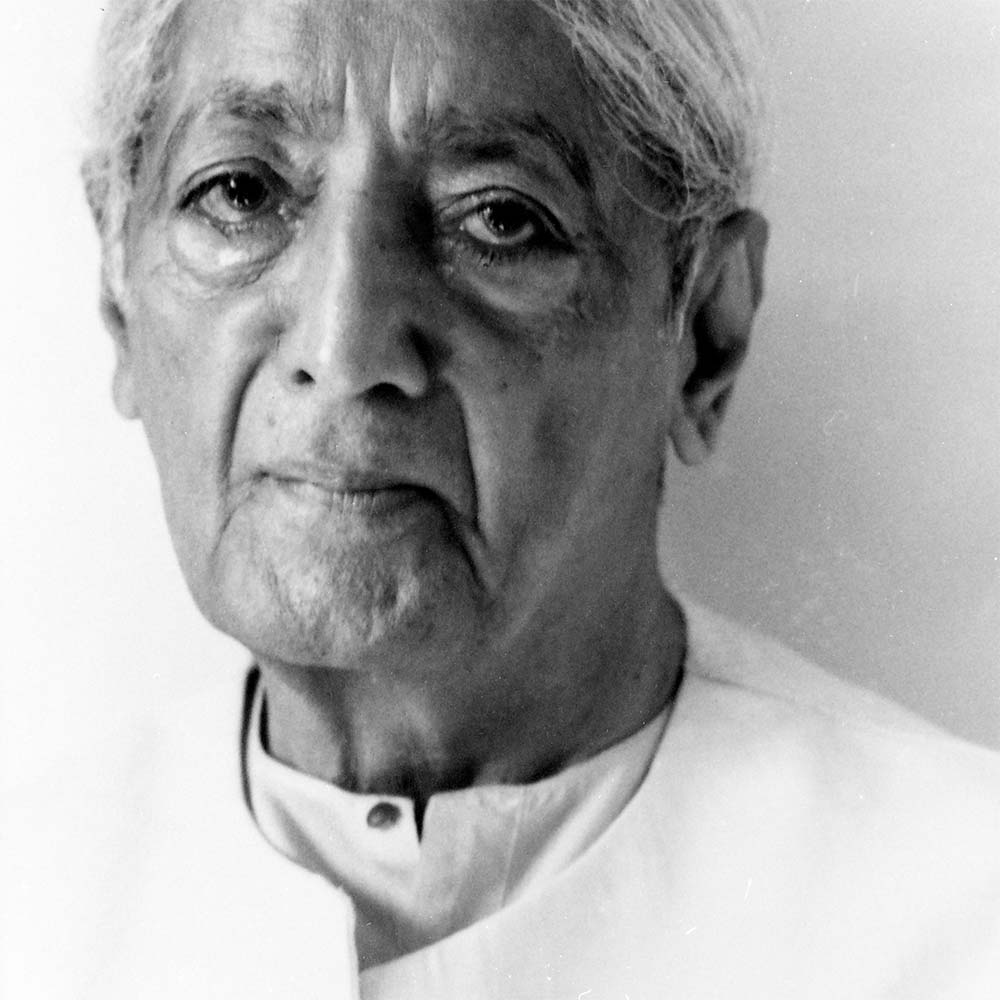The urge to find out what truth is, what God is, is the only real urge – all other urges are subsidiary.
Krishnamurti, Think on These Things
Read More
There is no path to truth. Truth is not to be understood through any system or any path.
Krishnamurti, To Be Human
Read More
What the mind seeks it will find; what it finds will not be the truth.
Krishnamurti, The First and Last Freedom
Read More
Truth is not the opposite of a lie. That which has an opposite is not truth.
Krishnamurti, Freedom From the Known
Read More
Truth is not to be conquered; you cannot storm it; it will slip through your hands if you try to grasp it. Truth comes silently, without your knowing. What you know is not truth, only an idea or symbol. The shadow is not the real.
Krishnamurti, Commentaries on Living 2
Read More
Truth is not something to be remembered, stored up, recorded, and then brought out. What is accumulated is not truth.
Krishnamurti, Commentaries on Living 2
Read More
When you know something, it ceases to be truth because it is past; it is entirely arrested.
Krishnamurti, To Be Human
Read More
To seek is to deny the truth that is right in front of you. Your eyes must see that which is the nearest, and the seeing of that is a movement without end.
Krishnamurti, Meeting Life
Read More
TRUTH cannot be given to you by somebody. You have to discover it, and to discover, there must be a state of mind in which there is direct perception.
Krishnamurti, Freedom From the Known
Read More
Truth is in the silent observation of ‘what is’, and it is truth that transforms ‘what is’.
Krishnamurti, Commentaries on Living 1
Read More
To seek is to deny the truth that is right in front of you. Your eyes must see that which is the nearest, and the seeing of that is a movement without end.
Krishnamurti, Meeting Life
Read More
Truth is not yours or mine. What is yours can be organised, enshrined and exploited. That is what is happening in the world. But truth cannot be organised. Like beauty and love, truth is not in the realm of possessions.
Krishnamurti, The Only Revolution
Read More
It is truth that liberates, not your striving to be free.
Krishnamurti, Freedom From the Known
Read More
If you do not live it, truth becomes a poison.
Krishnamurti, Beyond Violence
Read More
Love is truth, and meditation is the discovery of the beauty of this truth.
Krishnamurti, Meeting Life
Read More
These quotes only touch on the many subjects Krishnamurti inquired into during his lifetime. His timeless and universal teachings can be explored using the Index of Topics where you will find texts, audio and video related on many themes. Another option is to browse our selection of curated articles or more short quotes. Krishnamurti’s reply when asked what lies at the heart of his teachings can be found here. Many Krishnamurti books are available, a selection of which can be explored here. To find out more about Krishnamurti’s life, please see our introduction and the biography. We also host a weekly podcast, and offer free downloads. Please visit our YouTube channel for hundreds of specially selected shorter clips. Below, you can learn more about Krishnamurti and our charity which he founded in 1968.

Who Was Krishnamurti?
J. Krishnamurti (1895-1986) is widely regarded as one of the greatest thinkers and religious teachers of all time. He spoke throughout the world to large audiences and to individuals, including writers, scientists, philosophers and educators, about the need for a radical change in mankind. Referring to himself, Krishnamurti said:
He is acting as a mirror for you to look into. That mirror is not an authority. It has no authority, it’s just a mirror. And when you see it clearly, understand what you see in that mirror, then throw it away, break it up.
Krishnamurti was concerned with all humanity and held no nationality or belief and belonged to no particular group or culture. In the latter part of his life, along with continuing to give public talks, he travelled mainly between the schools he had founded in India, Britain and the United States, which educate for the total understanding of man and the art of living. He stressed that only this profound understanding can create a new generation that will live in peace.
Krishnamurti reminded his listeners again and again that we are all human beings first and not Hindus, Muslims or Christians, that we are like the rest of humanity and are not different from one another. He asked that we tread lightly on this earth without destroying ourselves or the environment. He communicated to his listeners a deep sense of respect for nature. His teachings transcend man-made belief systems, nationalistic sentiment and sectarianism. At the same time, they give new meaning and direction to mankind’s search for truth. His teaching is timeless, universal and increasingly relevant to the modern age.
I am nobody. It is as simple as that. I am nobody. But what is important is who you are, what you are.
Krishnamurti
Krishnamurti spoke not as a guru but as a friend. His talks and discussions are based not on tradition-based knowledge but on his own insights into the human mind and his vision of the sacred, so he always communicated a sense of freshness and directness, although the essence of his message remained unchanged over the years. When Krishnamurti addressed large audiences, people felt that he was talking to each of them personally, addressing their own particular problem. In his private interviews, he was a compassionate teacher, listening attentively to those who came to him in sorrow, and encouraging them to heal themselves through their own understanding. Religious scholars found that his words threw new light on traditional concepts. Krishnamurti took on the challenge of modern scientists and psychologists and went with them step by step, discussing their theories and sometimes enabling them to discern the limitations of their theories.
Krishnamurti left a large body of literature in the form of public talks, writings, discussions with teachers and students, scientists, psychologists and religious figures, conversations with individuals, television and radio interviews, and letters. Many of these have been published as books, in over 60 languages, along with hundreds of audio and video recordings.

The Krishnamurti Foundation
Established in 1968 as a registered charity, and located at The Krishnamurti Centre, Krishnamurti Foundation Trust exists to preserve and make available Krishnamurti’s teachings.
The Foundation serves a global audience by providing worldwide free access to Krishnamurti videos, audio and texts to those who may be interested in pursuing an understanding of Krishnamurti’s work in their own lives.
In describing his intentions for the Foundations, Krishnamurti said:
The Foundations will see to it that these teachings are kept whole, are not distorted, are not made corrupt.

